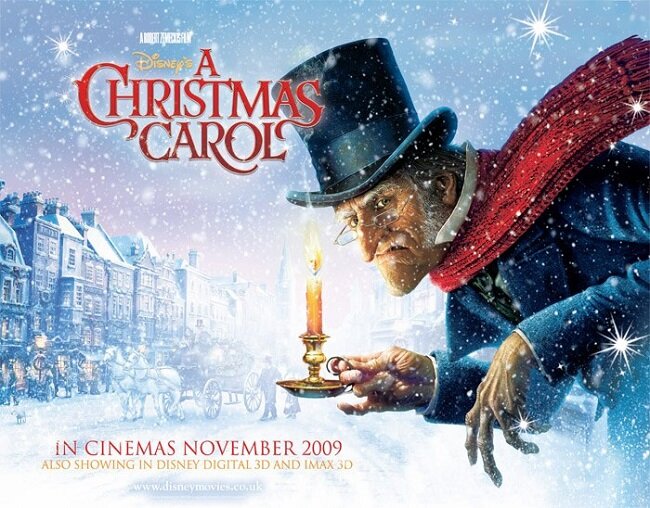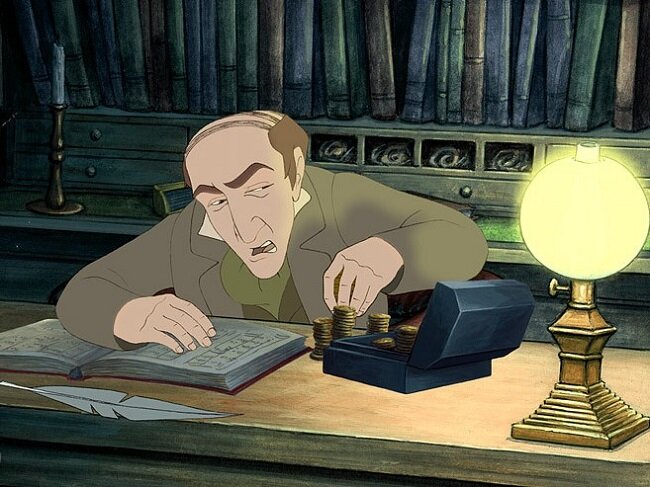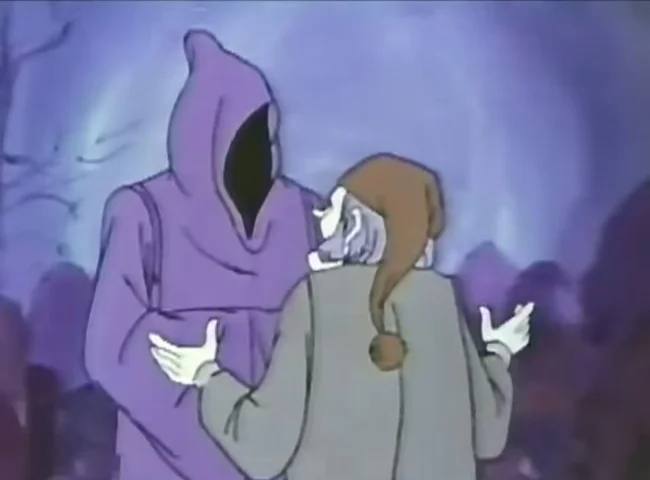Scrooge (1951)
I am a great fan of Charles Dickens' "A Christmas Carol". There is something very special about the novella which is quite hard to quantify. It is a very unique book despite its central theme of redemption being universal. The text has for want of another phrase, a "power" to it. It is profoundly moving, insightful and true. Perhaps the key this story’s appeal lies with the central character, Ebenezer Scrooge. Not because Scrooge is a monster (which are so often fascinating) but because he's a man broken by circumstance. I think readers throughout the years have related to this and considered "There, but for the grace of God, go I". Cinema has found a rich vein of gold running through this tale, which is why it’s been revisited so often and interpreted so many ways.
I have my own personal favourites such a Richard William's superb animated version, which is quite shocking in its depiction of the supernatural. Then there is the musical version Scrooge, directed by Ronald Neame, from 1970. The film's musical score was composed by Leslie Bricusse and featured an outstanding central performance by Albert Finney who was only 34 at the time. I also have a soft spot for the 1984 TV movie version of A Christmas Carol, mainly due to George C. Scott's interesting take on the role of Scrooge. The characters traditional irascibility is replaced by a much colder and calculating demeanour.
However, I still find the 1951 adaptation of the story, filmed under the title Scrooge, to be a constant source of joy and fascination. The ensemble cast featuring such talents as Mervyn John, Ernest Thesiger, Michael Horden and Kathleen Harrison portray a very stark and foreboding vision of Dickensian times. Yet the acting never descends in to melodrama or excessive pathos. As for Alistair Sim's lead performance, it is simply sublime. The audience never once doubts the sincerity or credibility of his acting. His transformation at the movies climax is simply remarkable. The man seems to have changed in a tangible way that is clear to see, yet hard to define. That is the hallmark of the finest quality acting.
This modest production, deftly directed by Brian Desmond Hurst, exudes atmosphere. It is well paced and thorough. It also boasts handsome black and white cinematography by C.M. Pennington-Richards which captures the spirit of John Leech's original engraving from the first edition of the book. Art Director Ralph Brinton creates a very gloomy London, gripped in a bitterly cold winter. The location footage is minimal but very imposing, such as the use of the Royal exchange. The set designs have an authentic feel to them, especially Scrooge's dreary office. Unlike contemporary productions the story does not get bogged down or overshadowed by excessive effects work. The optical processing is simple and functional.
There is much to ponder after watching Scrooge. Viewers can consider the movie’s themes from a moral, religious or even a socio-political context, because it contains all those elements. Due to lapses in copyright the film has been released multiple times on numerous formats. Many copies are of poor quality. At present I would recommend the 2011 VCI Blu-ray release that featuring an excellent restored print of the film as well as superb commentary by the late George Cole. Despite being perceived as being a seasonal film Scrooge makes for thought provoking and entertainment year all year round. Perhaps more frequent viewing would encourage goodwill to all men all year round, rather than just as Christmas.

















